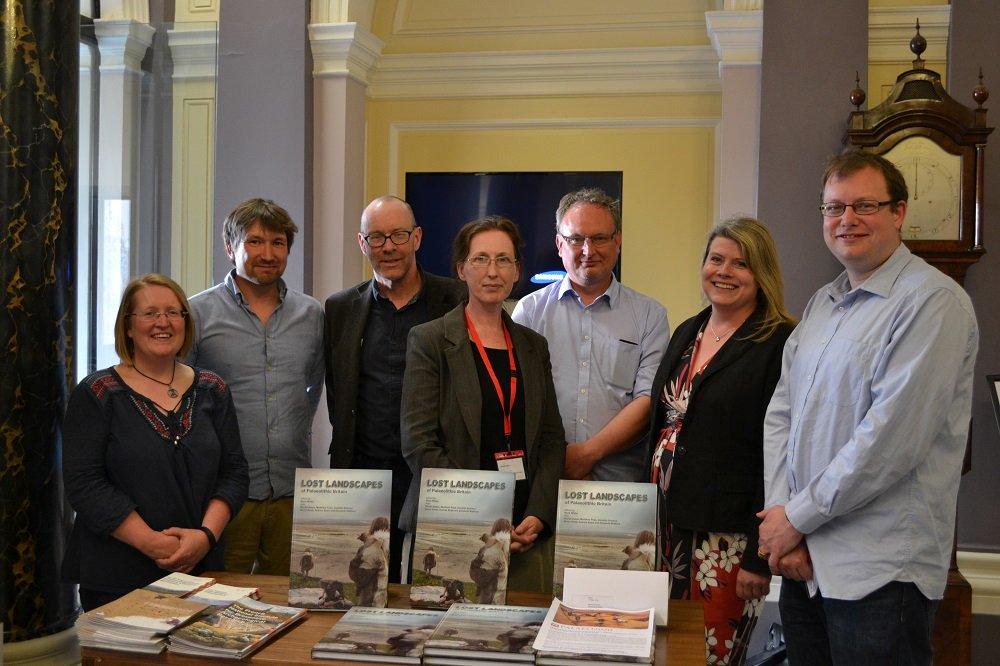The official book launch of Lost Landscapes of Palaeolithic Britain was held on the 19th May at an evening reception hosted by the Society of Antiquaries of London in the beautiful rooms at Burlington House, Piccadilly.
Projects supported by £8.8 million of funding from the British Government under the Aggregates Levy Sustainability Fund (ALSF) administered by English Heritage (now Historic England) have completely transformed our understanding of the Palaeolithic and contributed to our understanding of Pleistocene environments in Britain. This is a period of multiple Ice Ages interspersed with warmer periods, which forms the backdrop for human evolution. The benefits to archaeology and for the interpretation of these fragile remains from this ancient epoch have been incalculable.

This volume draws together the results of this research in a series of thematic chapters and illustrated text boxes focusing on key techniques, methodologies and case studies, providing a commentary for the non-specialist. Insights obtained from projects have helped to define future priorities and milestones for Palaeolithic research.
The book is available to buy from Oxbow Books.
A digital copy of the book can be downloaded from the OA digital library.
The Conference
The event followed the Palaeo2020 conference, a day of presentations and discussion focusing on strategies for the protection and transformation of the Palaeolithic resource.
The conference was very well attended by archaeologists from a range of academic, curatorial and commercial backgrounds, including several staff members from Oxford Archaeology. The Society’s General Secretary, John Lewis, and Historic England’s Jonathan Last commended the Lost Landscapes team on the production of the book.
Professor Mark White spoke about the Lost Landscapes project and legacy of the Aggregates Levy Sustainability Fund in session 4 of the conference.
Click here to watch a number of recordings of the conference sessions.
Source: Oxford Archaeology
